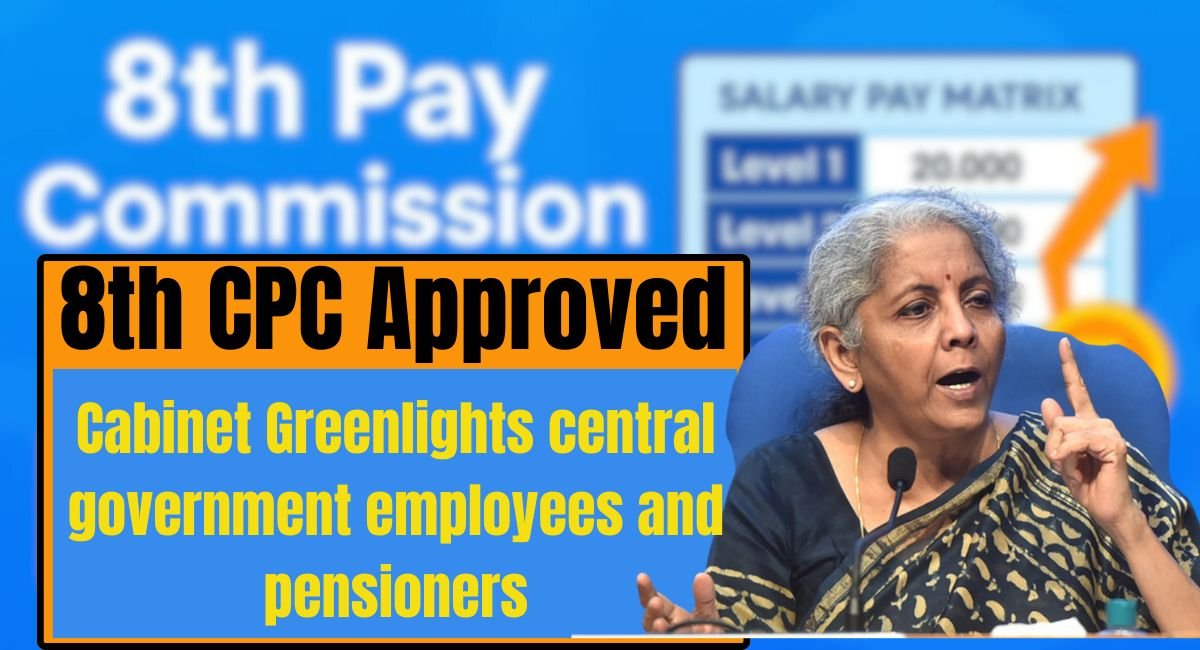The Union Cabinet on October 28, 2025 under Prime Minister Narendra Modi has given a green signal to the Terms of Reference (ToR) for the 8th Central Pay Commission (8th CPC). This decision affects directly the salary revision of over 1 crore central government employees and pensioners. The commission will be submitting its recommendations in 18 months time, with implementation likely to be from January 1, 2026.
What Is the 8th Pay Commission?
The Commission is a body comprising government-appointed members whose task is to examine and recommend alterations to the salaries, pensions, and working conditions of the employees in the central government. The new’ CPC will be headed by retired Supreme Court judge Ranjana Prakash Desai and one part-time member and one member-secretary will support her. It will evaluate economic and fiscal conditions, and the welfare of the employee during the whole process of drafting its report.
What Will the Commission Do?
The 8th CPC will:
- Assess salary structures, allowances, and pension entitlements
- Propose overhauls that would result in greater effectiveness and more contented employees
- If necessary, deliver interim reports before final recommendations
The commission will also take into account the inflation and cost of living developments in projecting the government employees and retirees’ salaries, thus guaranteeing equitable remuneration across all ranges.
8th Pay Commission Highlights Table
| Feature | Details |
|---|---|
| Approval Date | October 28, 2025 |
| Chairperson | Justice Ranjana Prakash Desai |
| Members | 1 Part-Time, 1 Member-Secretary |
| Report Timeline | Within 18 months |
| Expected Implementation | January 1, 2026 |
| Coverage | 1 crore+ employees & pensioners |
Final Thoughts
The affirmation of the 8th Pay Commission is an important move to enhance government employees’ and pensioners’ financial well-being. The mid-2027 suggestion is expected, so employees are advised to be continually updated and ready for possible transitions in pay grades, allowances, and retirement benefits. This reform is a guarantee of a more equitable and agile pay system for the public workforce of India.


